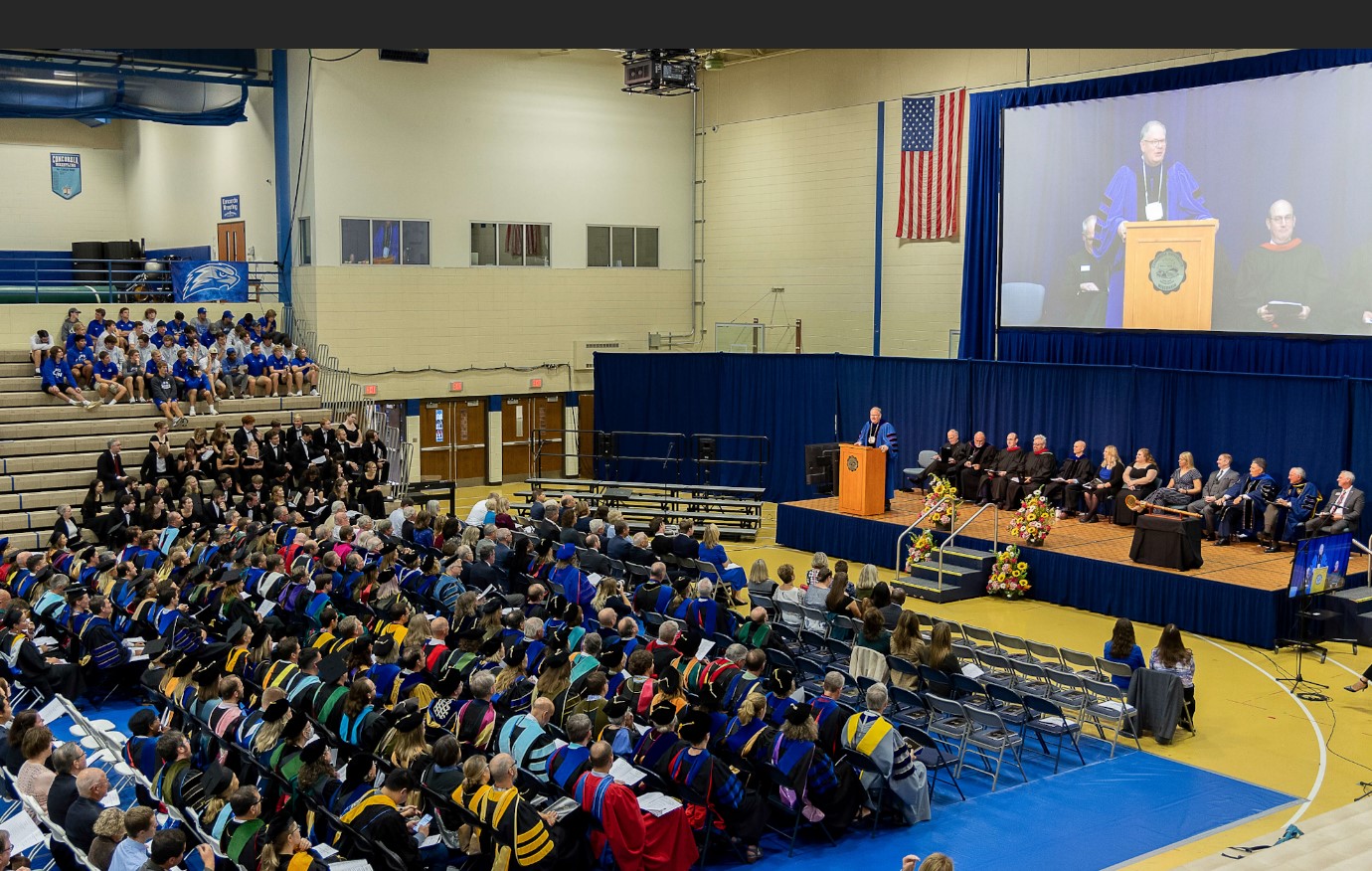
For the opening letter of Hearts Together, President Ankerberg discusses the “new” that has already been promised to God’s people.
Editor’s note: A version of this letter first appeared in the fall 2023 edition of Hearts Together. The official magazine of Concordia University Wisconsin and Ann Arbor publishes biannually.
Make it new.
These three simple words encapsulate the professional and almost sacred obligation of the poet Ezra Pound and his fellow proponents of modernism. They held a goal to reinvent the literature, the art, the very life of the 20th century. The novelty of Pound’s revolutionary assertion certainly stems from its expression of an optimism for the transformation of a culture and its society.
High hopes for this new start
In a way, the beginning of each new academic year offers a similar kind of opportunity, in the spirit of Pound, to make all things new again. I cannot deny that I have begun my first full academic year as president of Concordia University Wisconsin and Ann Arbor with high hopes. Many of you may hold similar optimism for me.
Such optimism resonates with Emily Dickinson’s poetic definition of hope, where she writes, “Hope is the thing with feathers that perches in the soul, and sings the tune without the words, and never stops at all.” We want so earnestly to define our life in terms of hope, but often we fail to understand exactly why we so desperately need hope.
As you might imagine, my best intentions as a president will not always come to fruition—sometimes it will be my fault, and sometimes it will be because of circumstances beyond my control. Thankfully, the same does not have to be said when it comes to our eternal futures.
The challenges we face, as individuals and as a university community, remind us that sin is the only thing we contribute to our salvation. This awareness and emptiness and longingness for something more defines the cry of the psalmist in Psalm 42. He writes, “As a deer longs for flowing streams, so my soul longs for you, O God. My soul thirsts for God, the living God.”
The psalmist’s images of longing and thirst capture the bareness of our lives. When left to ourselves and our own imagination and effort, we know we are broken and dead and unable to manufacture anything that is true or beautiful or good or satisfying or enduring or even living in our lives. Instead, we are left to echo the writer’s later question in this psalm: “When shall I come and behold the face of God?”
When shall I behold the face of God?
What an essential question for us! The manner in which we answer the question defines how we understand our present and our future. If we believe that our good intentions, our pious works, our carefully curated network of right, connected people will somehow bring us face-to-face with God, we’re sorely mistaken. In reality, we’re only constructing a hell of our own making.
If we wish to experience hope rather than hell, like the psalmist, we are invited to remember our experiences in the house of God. Our Lord mercifully reciprocates this act of remembering with one of his own. When we are despondent like the psalmist, when our souls are cast down within us, when we are disquieted or in turmoil about the state of our lives, we come to the house of God. In His holy temple, we remember how our Lord remembers us.
This new academic year certainly provides us with many opportunities to make our lives new, and, yes, a lot of good can come from those efforts. But let us remember that our Lord has created a new for us that will not disappoint. He has created a new home for us to occupy—a home of hope that He has built with water and His Word and His body and His blood. Because of His enduring love, we will live with Him and praise Him, not only today but for all eternity.
Want in?
Christ-minded. Ethical. Hard working. Respectful. Curious. Leader. While all our students are different, certain qualities unite our community and make us Concordians. We look forward to welcoming you to the ranks of our alumni.
The fall 2023 Hearts Together magazine hits mailboxes in November. View a PDF version of the magazine here. If you are not on our mailing list, but are interested in receiving a free copy, email Jennifer.Hackmann@cuaa.edu.